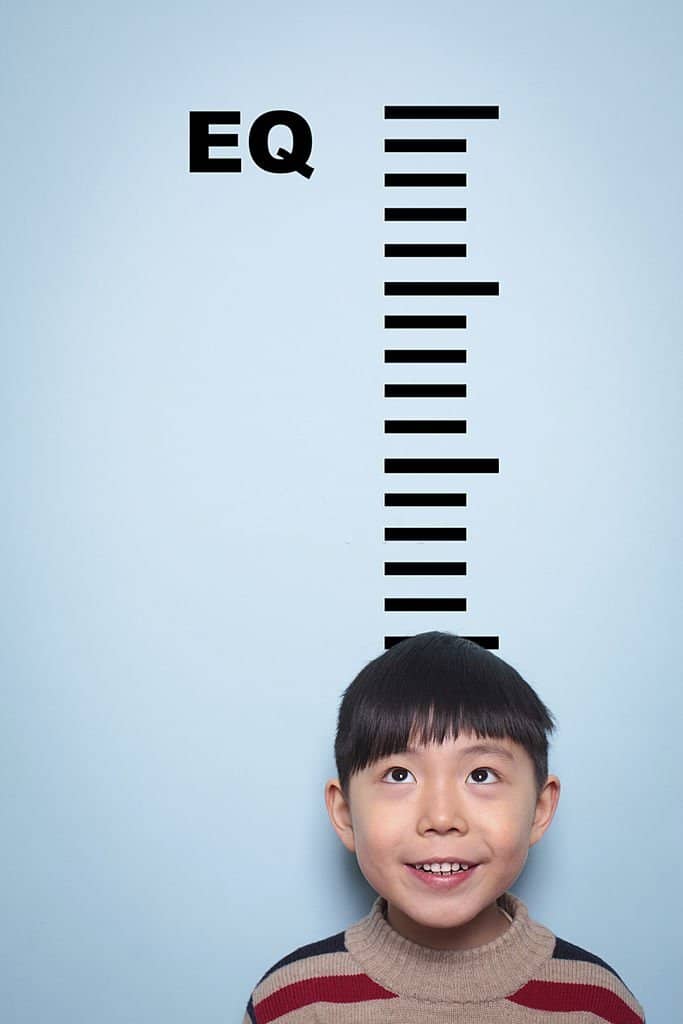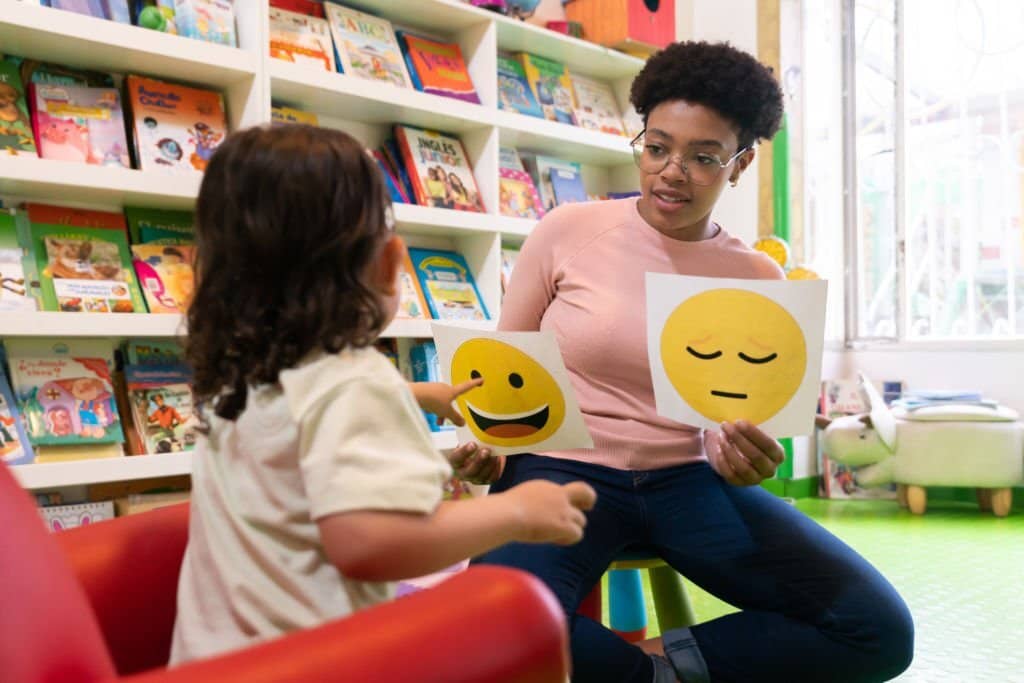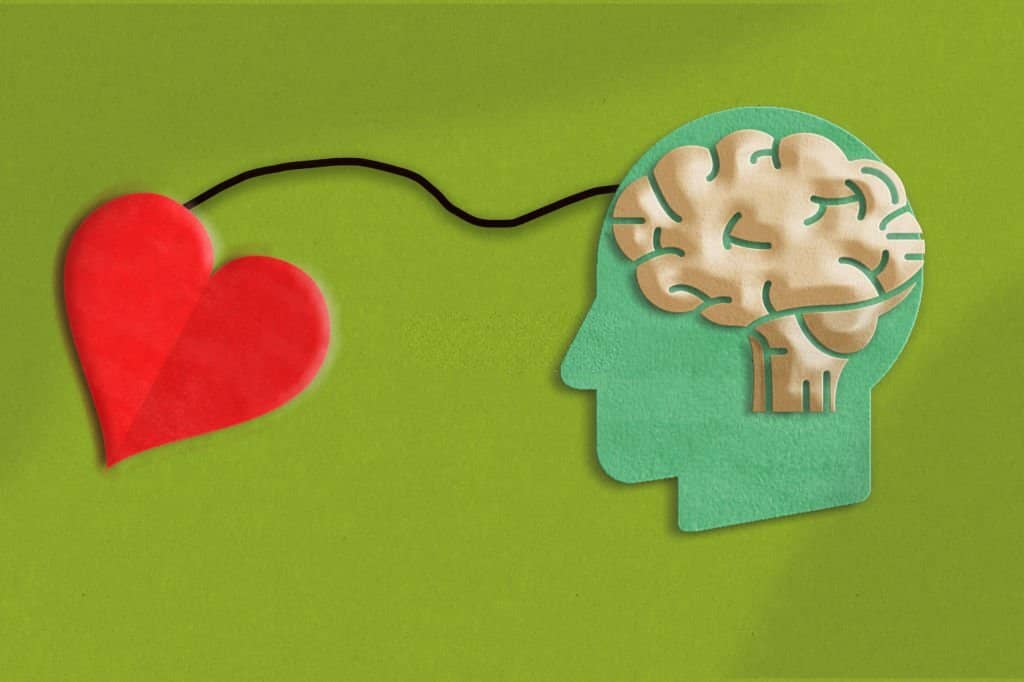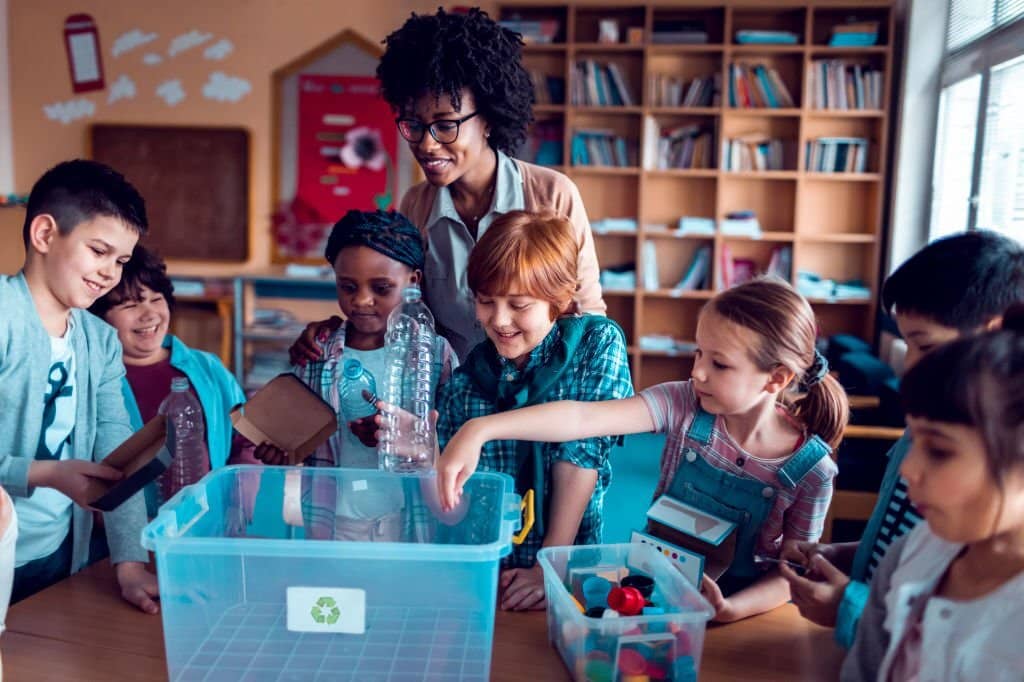I. Introduction
Emotional Intelligence (EI) refers to the ability to identify, understand, and manage emotions in oneself and others.
Emotional intelligence in kids is an essential life skill that helps them navigate the ups and downs of life and build positive relationships with others.
Emotional intelligence skills are crucial for children as they grow up and face challenges and opportunities that require them to interact with people and situations in a positive and constructive way.
Developing emotional intelligence in kids is an ongoing process that starts from an early age and continues throughout their childhood and adolescence.
It is a critical aspect of their growth and development, and it can significantly impact their success in life.
-
Defining emotional intelligence in Kids
Emotional intelligence in kids involves several skills, including:
- Self-awareness – the ability to recognize and understand one’s own emotions, thoughts, and behaviors.
- Self-regulation – the ability to manage and control one’s emotions and behaviors in response to different situations.
- Motivation – the ability to channel one’s emotions towards achieving personal goals.
- Empathy – the ability to understand and share the feelings of others.
- Social skills – the ability to communicate effectively, build positive relationships, and resolve conflicts.
-
Why it’s Important to develop emotional intelligence in Children
Developing emotional intelligence in kids is essential because it helps them understand and manage their emotions and behaviors, which can significantly impact their mental health, relationships, and academic success.
Children who have high emotional intelligence tend to be more self-aware, have better self-regulation, and are more motivated to achieve their goals.
They can also understand and communicate their emotions effectively, build positive relationships with others, and resolve conflicts constructively.
On the other hand, children who lack emotional intelligence may struggle to regulate their emotions, have difficulty communicating their feelings, and may struggle to form healthy relationships with others.
In conclusion, emotional intelligence in kids is an essential life skill that helps children understand and manage their emotions, build positive relationships, and achieve personal and academic goals.
As parents, caregivers, and educators, it is our responsibility to foster the development of emotional intelligence in children by providing them with the necessary tools and resources to grow and thrive.
II. The Five Components of Emotional Intelligence

Emotional intelligence (EI) is a critical life skill that can help children navigate their emotions and build healthy relationships with others.
EI is made up of five components that work together to form a child’s overall emotional intelligence.
These components include self-awareness, self-regulation, motivation, empathy, and social skills.
In this section, we’ll take a closer look at each of these components and explore how they contribute to the development of emotional intelligence in kids.
-
Self-Awareness
Self-awareness is the ability to recognize and understand your own emotions and how they impact your thoughts and behaviors.
Children who have strong self-awareness are better able to express their emotions in healthy ways and have a deeper understanding of their own needs and desires.
They are also better equipped to manage their emotions, make sound decisions, and build healthy relationships with others.
One way to help children develop self-awareness is to encourage them to identify their emotions and talk about how they are feeling.
Parents can create a safe and supportive environment where children feel comfortable expressing their emotions and can teach children to recognize and label their emotions.
By doing this, children can begin to understand how their emotions impact their thoughts and behaviors.
-
Self-Regulation
Self-regulation is the ability to manage and control your emotions, thoughts, and behaviors in different situations.
Children who have strong self-regulation skills are better able to manage their emotions and impulses, stay focused, and make good decisions.
They are also better able to cope with stress and manage their behavior in social situations.
Parents can help children develop self-regulation skills by teaching them different strategies for managing their emotions and impulses.
These strategies may include deep breathing, taking a break, or engaging in a calming activity such as yoga or meditation.
By practicing these strategies, children can learn to regulate their emotions and behaviors in different situations.
-
Motivation
Motivation is the drive to achieve goals and work toward success.
Children who are motivated are more likely to set goals, work hard, and persist in the face of challenges.
They are also more likely to have a positive outlook on life and feel a sense of purpose.
Parents can help children develop motivation by encouraging them to set goals and work towards achieving them.
Parents can also help children find activities that they are passionate about and support them in pursuing those activities.
By doing this, children can develop a sense of purpose and motivation to succeed.
-
Empathy
Empathy is the ability to understand and share the feelings of others.
Children who have strong empathy skills are better able to communicate effectively, build healthy relationships, and show compassion towards others.
They are also better able to resolve conflicts and negotiate effectively.
Parents can help children develop empathy skills by encouraging them to think about how others might be feeling in different situations.
Parents can also model empathy by showing compassion towards others and expressing their own emotions in a healthy way
. By doing this, children can develop a deep understanding of emotions and learn to communicate effectively with others.
-
Social Skills
Social skills are the ability to communicate effectively, build relationships, and work collaboratively with others.
Children who have strong social skills are better able to navigate social situations, resolve conflicts, and build healthy relationships.
They are also better able to work effectively in teams and collaborate with others towards a common goal.
Parents can help children develop social skills by teaching them effective communication strategies, such as active listening and assertiveness.
Parents can also provide opportunities for children to work collaboratively with others and build healthy relationships.
By doing this, children can develop strong social skills and build lasting friendships.
In conclusion,
Developing emotional intelligence in kids is crucial for their success in life. Emotional intelligence can help children navigate their emotions, build healthy relationships, and achieve
III. The Benefits of Emotional Intelligence in Kids

Emotional intelligence is not only important for adult life but also for children.
Developing emotional intelligence in kids has numerous benefits that can help them navigate their emotions, form better relationships, and achieve success in life.
In this section, we will discuss the benefits of emotional intelligence in kids.
-
Improved communication and relationships
Children who are emotionally intelligent are better able to communicate their feelings and needs effectively.
They are also more capable of understanding the emotions of others, which helps them build stronger and more meaningful relationships.
They are able to resolve conflicts in a positive way, which helps to prevent problems from escalating into more serious issues.
-
Better academic performance
Studies have shown that kids who possess emotional intelligence tend to perform better in school.
This is because they are better able to focus, manage stress and anxiety, and work collaboratively with others.
They are also able to think critically and creatively, which is important for problem-solving.
-
Increased happiness and well-being
Emotionally intelligent children tend to be happier and have higher levels of well-being.
They are able to regulate their emotions and manage stress more effectively, which helps to prevent negative emotions from taking over.
This can lead to a more positive outlook on life and a greater sense of overall happiness.
Overall,
Developing emotional intelligence in kids is crucial for their success in life.
By providing them with the tools to understand and manage their emotions, we can help them build stronger relationships, perform better academically, and live happier, healthier lives.
IV. How to Develop Emotional Intelligence in Kids
Emotional intelligence is a critical aspect of a child’s development, and it is important to provide them with the right tools and support to develop it.
Here are some ways to encourage emotional intelligence in kids:
-
Encouraging self-expression and self-reflection
To develop emotional intelligence, children must learn to identify and understand their emotions.
Encourage your child to express their feelings, whether it is through art, writing, or simply talking to you.
Additionally, teach them to reflect on their emotions and what triggers them.
This helps children learn to recognize and manage their emotions.
-
Teaching mindfulness and self-regulation techniques
Mindfulness is the practice of being present and aware of one’s thoughts and feelings.
By teaching children mindfulness techniques, such as deep breathing or meditation, they can learn to regulate their emotions and manage stress.
It can also help them stay focused and calm.
-
Fostering empathy and compassion
Empathy and compassion are essential components of emotional intelligence.
Encourage your child to consider other people’s perspectives and feelings.
You can do this by modeling empathy and compassion yourself and encouraging your child to put themselves in other people’s shoes.
Engaging in acts of kindness and volunteering can also help foster empathy and compassion.
-
Encouraging social interaction and communication skills
Social skills, such as communication and cooperation, are important aspects of emotional intelligence.
Encourage your child to interact with others, whether it is through playdates, extracurricular activities, or simply talking to people.
This helps them develop their social skills and learn to understand and communicate their emotions effectively.
By implementing these strategies, parents can help their children develop emotional intelligence, which can have numerous benefits for their overall well-being and success in life.
It takes time and effort, but the rewards are well worth it.
V. Emotional Intelligence Activities for Kids
Emotional intelligence activities can be an effective way to develop emotional intelligence in children.
These activities can be engaging, fun, and challenging, helping kids to better understand and manage their emotions.
Here are some examples of emotional intelligence activities for kids:
-
Mindfulness exercises
Mindfulness can help kids to develop self-awareness, self-regulation, and empathy.
Simple breathing exercises, body scans, and guided meditations can be helpful tools for developing mindfulness skills in children.
Encouraging kids to take a few minutes each day to practice mindfulness can help them to be more present, focused, and calm.
-
Role-playing and social scenarios
Role-playing and social scenarios can help kids to develop empathy, social skills, and problem-solving skills.
This can involve acting out different scenarios and discussing how they might feel in different situations.
For example, kids might role-play a conflict with a friend and discuss how they could resolve it in a positive way.
-
Creative expression activities
Creative expression activities, such as drawing, painting, or writing, can be a powerful tool for emotional expression and self-reflection.
These activities can help kids to process and express their emotions in a healthy and constructive way.
-
Journaling and self-reflection exercises
Journaling and self-reflection exercises can help kids to develop self-awareness, self-regulation, and self-reflection skills.
Encouraging kids to write down their thoughts and feelings can help them to better understand themselves and their emotions.
Providing prompts or questions can help guide their reflection and encourage deeper thinking.
By incorporating these emotional intelligence activities into your child’s routine, you can help them develop important skills that will benefit them for years to come.
These activities can also be a great opportunity for you to connect with your child and support their emotional development.
VI. Supporting Emotional Intelligence Development at Home and School

Emotional intelligence is a vital skill for children to develop and can have significant impacts on their overall well-being and success in life.
While developing emotional intelligence in kids is important for children, it’s also important for parents and caregivers to provide support and opportunities for growth.
This support can happen both at home and in school settings.
-
Creating a safe and supportive environment
Creating a safe and supportive environment is the first step in supporting emotional intelligence in kids’ development.
Children need to feel comfortable and safe to express their emotions and explore different aspects of their emotional experiences.
Parents and caregivers can create a supportive environment by actively listening to their children, acknowledging their emotions, and validating their feelings.
This helps children develop trust in their caregivers and feel safe to express themselves openly.
-
Providing positive feedback and reinforcement
Providing positive feedback and reinforcement is also crucial in supporting emotional intelligence in kids’ development.
Children need to be praised for their efforts and progress rather than just their achievements.
This helps children develop a growth mindset, which is important for developing emotional intelligence in kids’ skills.
Caregivers can provide positive feedback by praising their child’s efforts, highlighting their strengths, and offering constructive criticism.
-
Encouraging open communication with children
Encouraging open communication with children is another essential aspect of supporting emotional intelligence development.
By fostering open communication, parents and caregivers can help children develop the skills necessary to express their emotions effectively and regulate their emotions. This can include asking open-ended questions, active listening, and validating children’s emotions.
This also helps children feel heard and understood, which can help build their confidence and self-esteem.
-
Partnering with educators and other caregivers
Partnering with educators and other caregivers is also important in supporting emotional intelligence development.
Teachers and other caregivers can provide additional opportunities for children to practice emotional intelligence skills, such as through group activities, discussions, and role-playing exercises.
Parents and caregivers can also work with educators to create a supportive environment that fosters emotional intelligence in kids’ development both at home and in the classroom.
In conclusion,
Supporting emotional intelligence in kids’ development in children is essential for their overall well-being and success.
By creating a safe and supportive environment, providing positive feedback and reinforcement, encouraging open communication, and partnering with educators and other caregivers, parents and caregivers can help children develop the emotional intelligence in kids’ skills they need to navigate life’s challenges.
VII. Challenges and Roadblocks to Developing Emotional Intelligence in Kids
As with any skill development, there may be challenges and roadblocks when it comes to developing emotional intelligence in kids.
However, recognizing these obstacles and learning how to overcome them can help ensure successful emotional development for children.
One common challenge is simply finding the time and resources to focus on emotional intelligence development.
With busy schedules and competing demands, it can be difficult to prioritize this aspect of a child’s growth.
However, it’s important to remember that emotional intelligence is a key factor in overall well-being and success in life, so it’s worth making the time to work on it.
Another challenge is addressing individual needs and differences.
Children have different temperaments and personalities, and what works for one child may not work for another.
It’s important to take a child’s unique needs and strengths into account when developing emotional intelligence in kids strategies.
In some cases, seeking outside support may be necessary to address emotional development challenges.
This could involve consulting with a mental health professional or seeking resources from community organizations.
It’s important to recognize when outside support is needed and not hesitate to reach out for help.
One of the biggest obstacles to emotional intelligence development in kids is the societal stigma around emotions.
Children may be told to suppress their emotions or that expressing emotions is a sign of weakness.
It’s important to combat this stigma by creating a safe and supportive environment where emotions are welcomed and valued.
By modeling healthy emotional expression and creating a culture of openness and acceptance, we can help children develop their emotional intelligence in kids in a positive way.
In conclusion,
While there may be challenges and roadblocks to developing emotional intelligence in kids, with the right strategies and support, it is possible to help children develop this important skill set.
By recognizing the benefits of emotional intelligence, addressing individual needs and differences, seeking outside support when necessary, and combating societal stigma, we can create an environment where children can thrive emotionally and develop into well-rounded individuals.
VIII. Conclusion
Emotional intelligence is a critical skill that every child needs to develop as it helps them navigate through life’s ups and downs.
In this blog post, we have discussed the importance of emotional intelligence in kids and how parents and educators can support its development.
Emotional intelligence in kids refers to their ability to recognize, understand, and manage their own emotions, as well as the emotions of others.
It is made up of five key components, including self-awareness, self-regulation, motivation, empathy, and social skills.
Developing these components can lead to numerous benefits, including improved communication and relationships, better academic performance, and increased happiness and well-being.
To develop emotional intelligence in kids, parents and educators can encourage self-expression and self-reflection, teach mindfulness and self-regulation techniques, foster empathy and compassion, and encourage social interaction and communication skills.
Activities such as mindfulness exercises, role-playing, creative expression activities, and journaling can help children develop emotional intelligence.
It is important to support emotional intelligence development both at home and school by creating a safe and supportive environment, providing positive feedback and reinforcement, encouraging open communication with children, and partnering with educators and other caregivers.
However, challenges and roadblocks may arise, and parents and educators should address individual needs and differences and seek outside support when necessary.
In conclusion, emotional intelligence is a critical skill that children need to develop.
By supporting its development, parents, and educators can help children navigate through life’s challenges, build strong relationships, and achieve success.
Encouraging self-expression, teaching mindfulness techniques, and fostering empathy and compassion are just a few ways to help children develop emotional intelligence.
Remember to create a safe and supportive environment and seek outside support when necessary.
By doing so, we can help our children become emotionally intelligent and successful adults.
 Music Education for Kids: The Benefits of Music Education
Music Education for Kids: The Benefits of Music Education Child Development Environment: Safe and Stimulating Environment
Child Development Environment: Safe and Stimulating Environment The Power of Play: Importance of Play for Kids – Full Guide 2023
The Power of Play: Importance of Play for Kids – Full Guide 2023